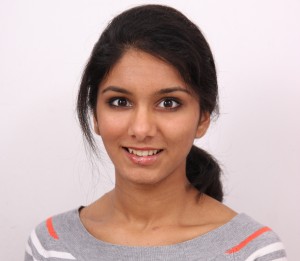 The website of India’s health minister, Harsh Vardhan, currently states: “So called ‘sex education’ to be banned. Yoga to be made compulsory.” The media has not been impressed, and controversy rages as health professionals and educators debate the merits of age appropriate sex education in schools.
The website of India’s health minister, Harsh Vardhan, currently states: “So called ‘sex education’ to be banned. Yoga to be made compulsory.” The media has not been impressed, and controversy rages as health professionals and educators debate the merits of age appropriate sex education in schools.
Vardhan has since retracted his original statement, saying: “Crudity and graphic representation of culturally objectionable symbols as manifested in the UPA’s [United Progressive Alliance, a coalition of political parties which governed India for the past 10 years] so called sex education programme cannot be called sex education. Every education system must strive to have an ideal curriculum, and to that extent my stand is valid. Sex education builds societies free of gender discrimination, teenage pregnancy, HIV-AIDS proliferation, pornography addiction.”
The whole brouhaha is a sign of confusion regarding sex education in the collective Indian consciousness. Previous research has suggested that many parents do no provide sex education to their sons or daughters—perhaps still afraid to have “the talk” with their children. Meanwhile, many teachers still shy away from teaching topics related to sex and sexual health, with some schools only covering the basic mechanics of reproduction in biology classes.
Learning about puberty and reproduction should be a key part of the syllabus, but so should a discussion of contraception and sexual health. It is imperative that students are well informed at an early age, before they begin to have sexual relations. This does not correspond with the age parents and educators would prefer them to begin having sexual relations, which in some cases may be after marriage. Unwanted pregnancies and the spread of sexually transmitted diseases (STDs) can be reduced by a greater awareness about the contraceptives available, the existence of STDs, and the possible benefits of condoms and abstinence.
Furthermore, given the shocking incidence of rape and sexual violence in India, it is vital that every student—male and female—is able to appreciate the principle of consent, so that they respect the human body and what their own limits are. Some parents may conveniently bury their heads in the sand, assuming that their son or daughter is incapable of having sex at a certain age simply because it is not culturally acceptable to them. Yet this is preposterous. Most children are exposed to scenes involving intimacy just from watching Bollywood movies, which form a huge part of India’s cultural fabric. And when the open discussion of sex is a taboo subject, even in science lessons, it means young people receive conflicting signals.
That is where doctors, nurses, and other health professionals come in. Students need someone who can dispassionately and accurately teach sex education, clearly explaining the benefits and limitations of various methods of contraception, as well as the prognoses and methods of transmission of STDs.
The word of health professionals carries more weight with students than teachers unqualified to teach sex education, or anyone propounding “cultural values” as a reason for abstinence. In the United Kingdom, sex education is a compulsory part of the curriculum from age 11—a practice that is not unusual among other countries. It is high time that India adopted a similar stance to ensure the safety, health, and wellbeing of its citizens.
Encouragingly, the debate on sex education is gaining online momentum among Indian’s youth. Take the example of this website, Youth ki Awaaz (literally translated as “voice of the youth”), which has hosted the debate and encouraged comments from both sides of the argument (comments in support of improved sex education seem to be winning so far). It is apparent that India is ready for sex education, and its youth may be among some of the loudest voices calling for it.
Lavanya Malhotra has just finished her first year of medicine at the University of Cambridge.
Competing interests: I, Lavanya Malhotra, declare that I have read and understood the BMJ policy on declaration of interests and I have no relevant interests to declare.